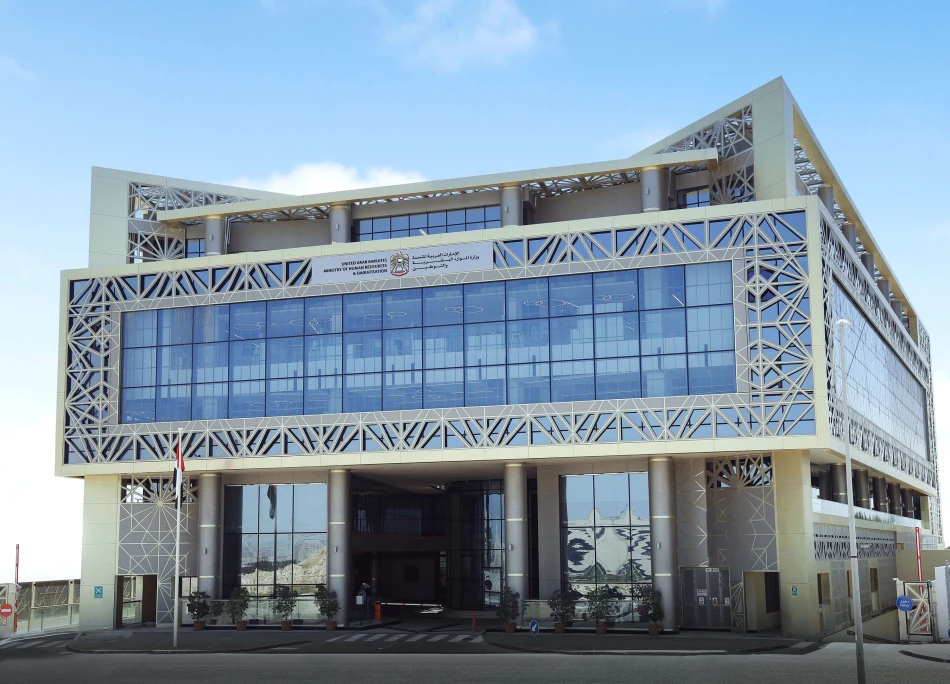
UAE's New Labor Law: Driving Emiratization and Workforce Competitiveness
UAE's Labor Law Revolution: How Strategic Workforce Legislation is Reshaping Global Talent Competition
The United Arab Emirates has positioned itself as a global leader in progressive labor legislation, with its comprehensive Federal Decree-Law No. 33 of 2021 delivering measurable results that extend far beyond worker protections. The country now leads nine international labor market indicators while achieving a remarkable 32.16% growth in new company registrations in 2024, demonstrating how balanced employment law can drive economic transformation and international competitiveness.
The Strategic Vision Behind UAE's Labor Framework
The UAE's Ministry of Human Resources and Emiratisation has crafted legislation that transcends traditional labor law boundaries. Rather than viewing worker protections and business flexibility as competing interests, the framework treats them as complementary forces driving sustainable development and economic diversification.
This approach reflects the UAE's broader economic strategy of positioning itself as the world's premier destination for living and investment. The legislation aligns with International Labour Organization agreements while respecting the UAE's unique economic and social characteristics, creating a model that other Gulf states are closely watching.
Market Performance: Where Theory Meets Results
Global Leadership in Key Metrics
The UAE's labor law success translates into concrete competitive advantages. The country ranks first globally in several critical areas: minimal labor disputes, low end-of-service compensation costs, reduced termination expenses, and absence of bureaucratic barriers. For multinational corporations evaluating regional headquarters locations, these factors represent significant cost savings and operational efficiency gains.
The country also leads in workforce growth, global expertise attraction, and talent acquisition capability. In 2024, the UAE secured first place in the Arab world for the Global Talent Index according to the International Institute for Development, positioning it ahead of traditional talent hubs.
Investment Climate Impact
The 32.16% surge in new company formations during 2024 signals strong investor confidence in the UAE's regulatory environment. This growth particularly concentrates in knowledge economy sectors, digital transformation, artificial intelligence, and other future economy pillars that require highly skilled, mobile talent.
Unlike Singapore's more restrictive approach to employment pass renewals or the US's complex H-1B visa system, the UAE offers streamlined processes that reduce administrative burden while maintaining quality controls.
Balancing Act: Worker Mobility vs. Employer Investment Protection
The Probationary Period Framework
Article 9 of the decree addresses a critical challenge in modern labor markets: protecting employer investments in talent acquisition while enabling worker mobility. When employees wish to change jobs during probationary periods, they must provide one month's notice or compensation equivalent to their salary for the notice period.
More significantly, original employers can demand reimbursement from new employers for recruitment costs including visa fees, residency permits, medical examinations, and permit issuance. This mechanism prevents the "talent poaching" that has plagued other competitive markets while ensuring workers retain mobility rights.
International Departure Provisions
For foreign workers terminating contracts during probation to leave the UAE entirely, the law requires 14 days' notice or equivalent compensation, plus a one-year work permit restriction. This provision protects employers from sudden departures while discouraging speculative job applications.
Regulatory Infrastructure: Beyond Legislation
The Ministry of Human Resources and Emiratisation operates a sophisticated oversight system that includes licensed recruitment agencies serving as intermediaries between job seekers and private sector employers. These agencies provide performance guarantees, allowing employers recourse when recruitment agreements aren't fulfilled.
Inspection teams monitor compliance, process complaints, and impose penalties for violations, creating accountability that benefits both workers and legitimate employers while disadvantaging non-compliant businesses.
Regional and Global Implications
The UAE's approach contrasts sharply with other regional models. While Saudi Arabia focuses heavily on nationalization quotas through Saudization, and Qatar emphasizes infrastructure-driven employment, the UAE prioritizes creating sustainable competitive advantages through regulatory excellence.
This strategy appears particularly relevant as global talent becomes increasingly mobile and selective about work destinations. Countries offering superior work-life balance, career progression opportunities, and legal protections gain significant advantages in attracting the skilled professionals driving modern economic growth.
The UAE's success suggests that rather than competing primarily on tax advantages or regulatory arbitrage, nations can differentiate themselves through sophisticated, balanced approaches to employment law that serve multiple stakeholder interests simultaneously. As remote work and digital nomadism reshape global talent flows, the UAE's model may prove increasingly influential for other jurisdictions seeking to enhance their competitive positioning.
Most Viewed News

 Sara Khaled
Sara Khaled






